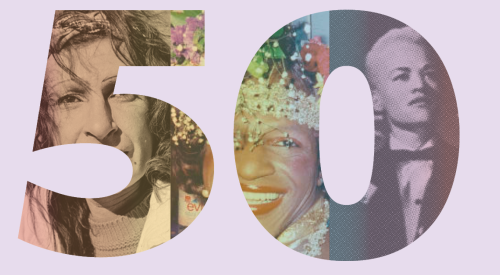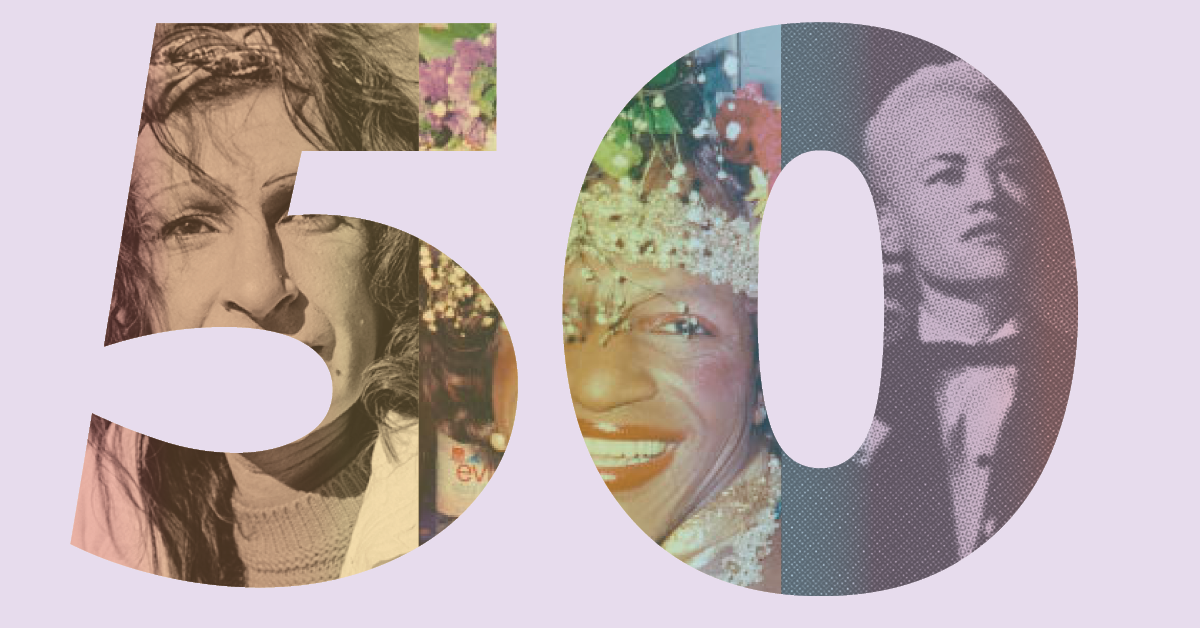
The Stonewall uprising: 50 years of LGBT history

On this day 50 years ago, an uprising took place at the Stonewall Inn in New York City. As it was raided by the police in the early hours, three nights of unrest followed, with LGBT people, long frustrated by police brutality, finally fighting back. Lesbians and trans women of colour were some of the key people involved in the act of resistance, including Stormé DeLarverie, Sylvia Rivera and Marsha P. Johnson. This anniversary is a reminder of the power of standing together in defiance of those who seek to divide us.
The Stonewall uprising took place in the context of broader civil rights movements. The Revolutionary People's Constitutional Convention in 1970 was a key moment in which activists from Black Power, feminist and gay liberation movements came together, saw common cause and learned from each other.
The Gay Liberation Front was the main organisation that formed out of the uprising and these wider movements. The GLF first formed in the US and were part of the original discussions to create the first Pride, which took place on June 28 1970 in New York City, a year after the Stonewall riots - then called the Christopher Street Day Parade.
Some UK activists were involved in some of these key moments in the US movement, and they came back to Britain to form a British chapter of the Gay Liberation Front, meeting for the first time at the LSE library in October 1970, with the first UK Gay Pride Rally taking place a few years later on 1 July 1972, in London.
In the UK, sexual acts between men had been partially decriminalised in 1967, but there was a huge amount of persecution of gay and bi men afterwards. Campaigning at the time was mainly led by the Homosexual Law Reform Society.
The 1970s were characterised by radical grassroots and community-based activism and support. There were many splinter groups from the Gay Liberation Front: the Campaign for Homosexual Equality was a key driving force, and the focus of activism was often explicitly focused on directly challenging heteronormative, conservative norms of family and gender roles; other community-led initiatives coming out of the 1970s included Gay News(set up in 1972), Switchboard (1974), and Gay’s the Word bookshop (1979).
The AIDS crisis dominated the 1980s for the LGBT community, first coming to public attention in 1981 when the first person died of an AIDS-related illness. A year later, a man named Terry Higgins was among the first people known to die of an AIDS-related illness in the UK: the Terrence Higgins Trust was set up in his name.
The prevalence of AIDS was greater in the USA than the UK, but in both countries there was a real lack of political and service support for people living with HIV/AIDS, leading to a huge emphasis on community activism and support. Lesbians and bi women provided critical support to gay and bi men during this time, and Act Up was the key campaigning group focused on challenging the lack of political and health support for people living with HIV / AIDS.
The LGBT community was politically and socially stigmatised throughout the 1980s, creating the hostile political context that allowed Section 28 to be passed as law. This piece of legislation effectively prevented teachers from talking about same-sex relationships in schools, forcing teachers back into the closet, or out of their job, and scarring a generation of LGBT people.
Stonewall was created to fight this discrimination in the UK, 20 years after the uprising.
On 11 September 1988, at a meeting held in Sir Ian McKellen’s house in Limehouse, the basic aims were drawn up in a document dubbed the Second Limehouse Declaration. The first Limehouse Declaration, announcing the launch of the Social Democrat Party, had been signed in the house next door.
On 24 May 1989, the new group sent a press release to the LGBT press announcing the founding of the Stonewall Group.
Over the past 30 years we’ve made a big difference to the lives of LGBT people here and around the world. In the UK, the LGBT movement has won employment rights. Parenting rights. Partnership rights. An equal age of consent.
Fifty years after the uprising, there's lots for us to celebrate – but there’s also a lot more work that needs to be done. We won’t stop, until everyone can be accepted for who they are - without exception.